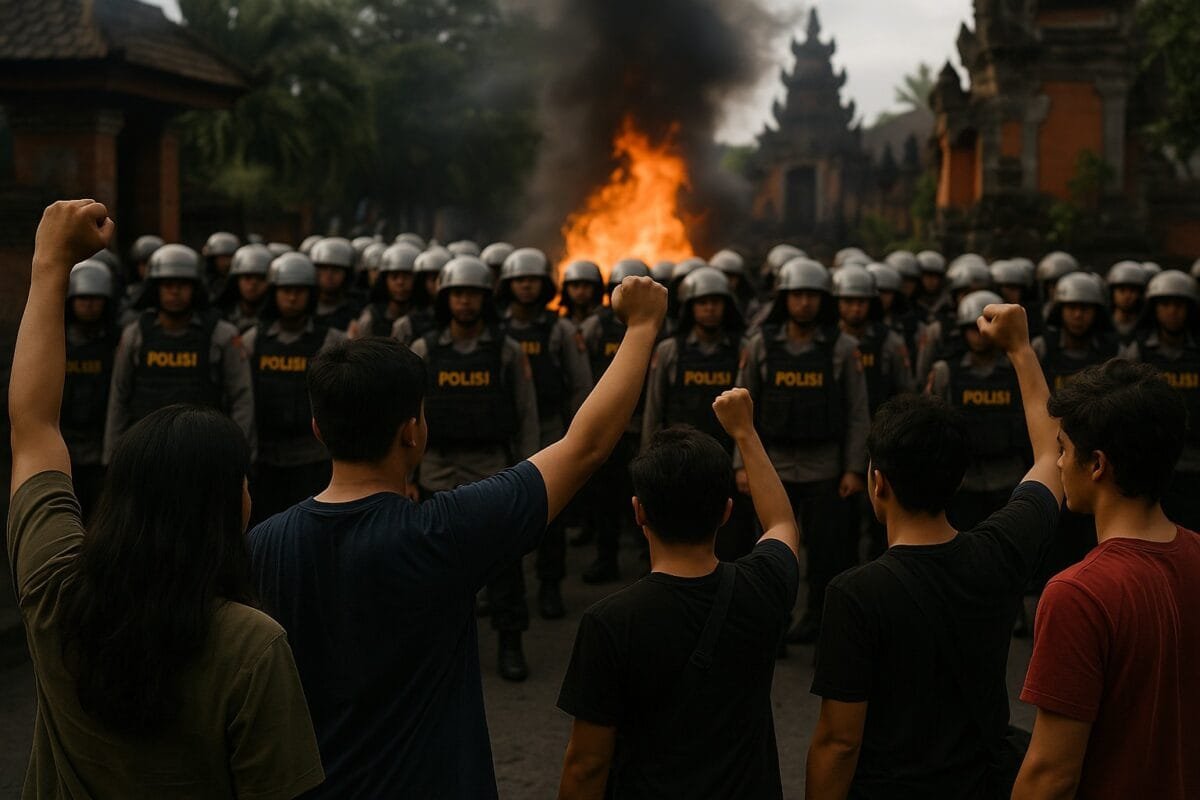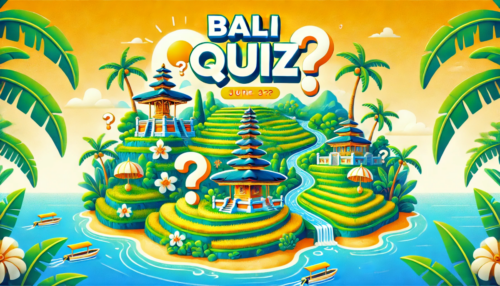Summary
- Trigger: During demonstrations in Jakarta, 21-year-old Gojek driver Affan Kurniawan was run over and killed by an armored police vehicle. The incident sparked nationwide protests.
- Spread: Demonstrations, some violent, have expanded from Jakarta to multiple provinces; there have been deaths and injuries, including after arson attacks on regional parliaments.
- Bali: In Denpasar, rallies were held outside the police headquarters; police used tear gas.
- Government Response: President Prabowo Subianto ordered a hard crackdown on crimes during the unrest and canceled an overseas trip; several officials have been reassigned or investigated.
- Digital Measures: TikTok has temporarily disabled livestreams in Indonesia; authorities are calling for stricter moderation.
- Travel Warnings: Embassies warn against demonstrations and advise avoiding hotspots. The general U.S. advisory level for Indonesia remains Level 2: Exercise Increased Caution.
What’s Happening Now – Situation in Detail
After several days of growing anger over political privileges and the cost of living, the situation escalated when a Brimob police vehicle in Jakarta ran over Gojek driver Affan Kurniawan; his death quickly became the catalyst for widespread protests.
As mobilization spread, violent clashes broke out in several cities, with regional parliaments set ablaze; at least three people were killed, others injured.
The protests have reached Bali: in Denpasar, hundreds of students and Gojek drivers gathered outside police buildings; tear gas was used and arrests were reported.
At the same time, TikTok temporarily disabled its live function in the country to curb the spread of problematic content during the unrest.
What Does This Mean for Travelers in Bali?
1) Where disruptions may occur
- Denpasar: Around the Bali Police headquarters (Polda Bali) and administrative buildings; demonstrations are most likely here.
- Traffic: In Jakarta, roads were blocked; similar short-term closures are possible elsewhere.
- Digital services: Restrictions on live-streaming and stronger moderation of social networks are possible.
2) What has not been reported so far
- There has been no official closure of Ngurah Rai International Airport (DPS) due to protests. Other temporary closures, such as on Nyepi or during volcanic activity, are unrelated.
3) Practical safety recommendations
- Avoid demonstrations, large gatherings, and police or government buildings.
- Plan buffer time for travel to and from Denpasar (e.g. for evening flights).
- Carry identification documents (passport/KITAS) and subscribe to embassy alerts; share plans and locations with companions.
- Prepare a communication backup (e.g. alternative messenger apps, eSIM) in case of service restrictions.
- Check your travel insurance (coverage for unrest, flight changes).
- Respect local rules (Bali tourism levy, temple dress codes, QRIS payments).
Assessment by Travel Region
- South Bali (Seminyak, Canggu, Uluwatu, Nusa Dua): Tourism generally continues; possible minor traffic delays, especially if protests in Denpasar intensify.
- Ubud & Central Bali: Avoid political gatherings; tourist highlights remain open.
- Jakarta arrivals/departures: Road closures and public transport disruptions most likely here – allow extra time for transfers.
Outlook and Hypothesis
Short-term (1–2 weeks): More, partly spontaneous demonstrations in Jakarta and provincial capitals. In Bali, mostly symbolic solidarity rallies near police and government offices, with heightened police presence. Travel routines remain mostly stable, with localized disruptions.
Medium-term: The risk of escalation decreases if investigations are transparent (disciplinary actions, prosecutions, compensation) and social demands are channeled. Without reforms, student groups, unions, and driver associations may call for larger days of action, with stronger impacts on tourism (e.g. more tear gas in city areas, more roadblocks), though beach destinations would be less affected.
Digital platforms: Temporary restrictions (e.g. livestreams) remain possible if violence flares again.
FAQ (Quick)
Is travel to Bali possible right now?
Yes, with increased caution and by avoiding political hotspots such as police and government areas.
Are beaches and attractions open?
Yes; minor traffic delays are possible, primarily away from tourist zones.
What should I focus on today?
Subscribe to alerts, plan flexible transfers, avoid crowds, and carry identification documents.






